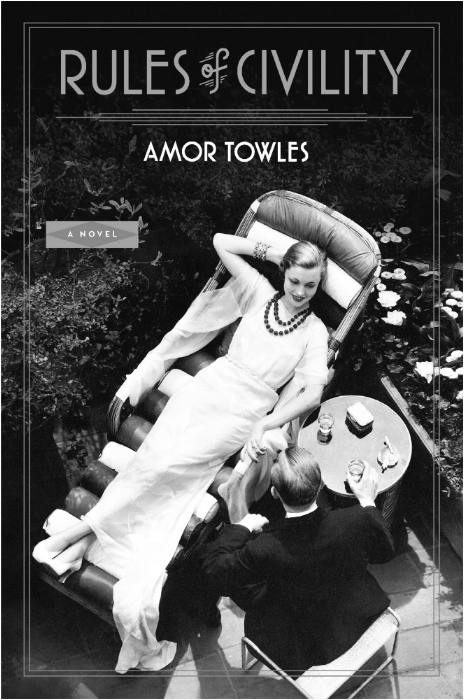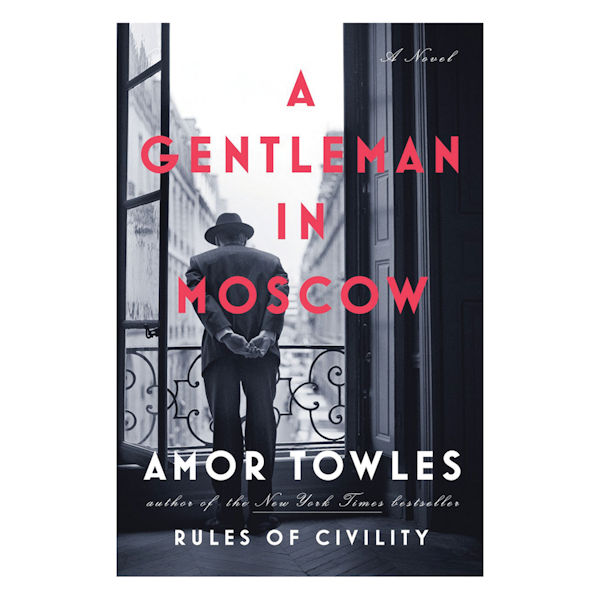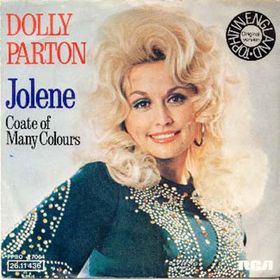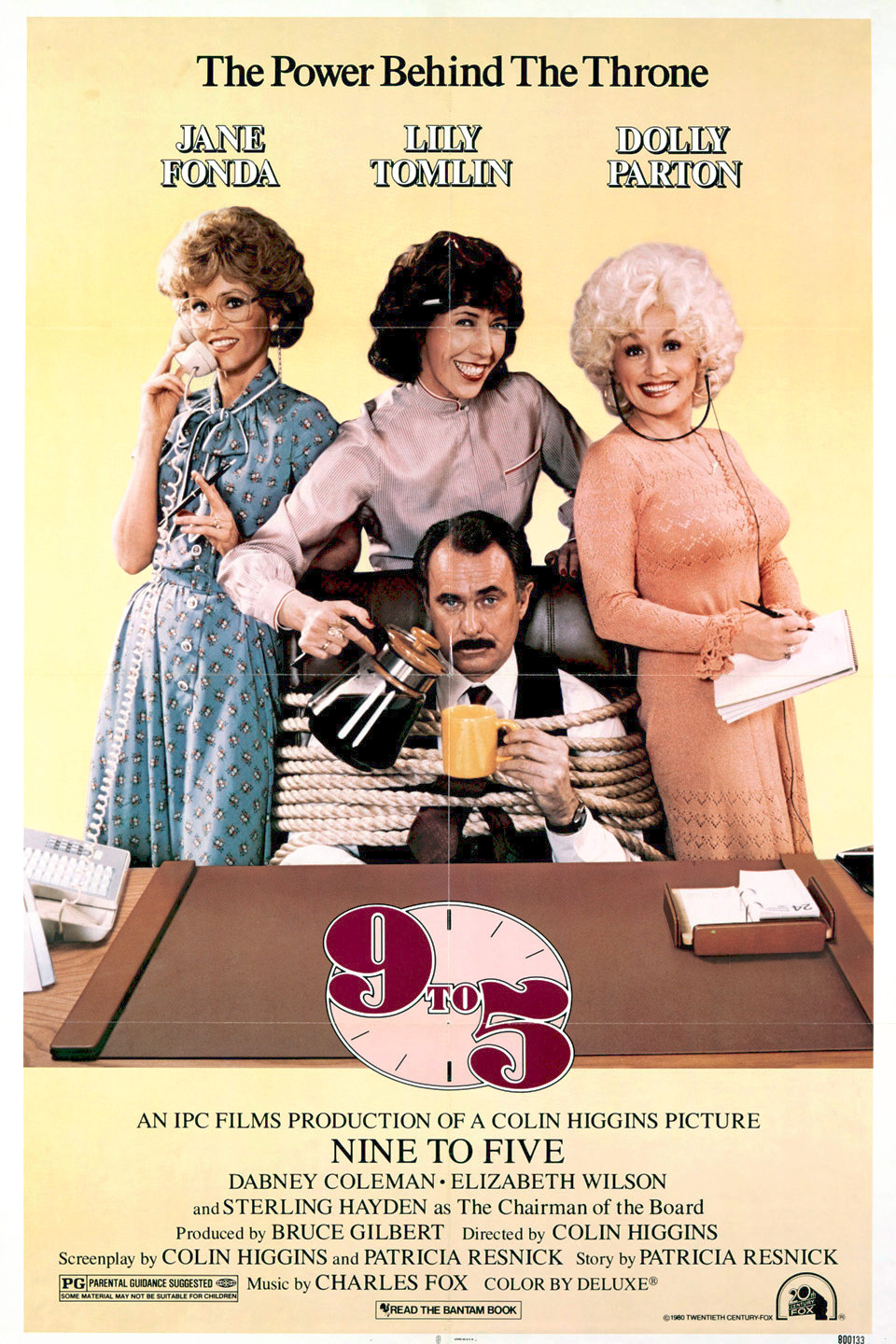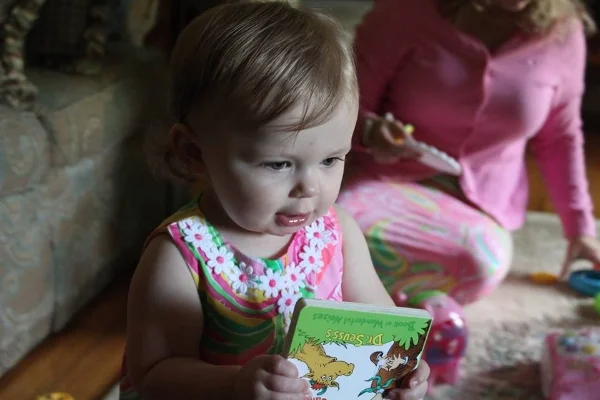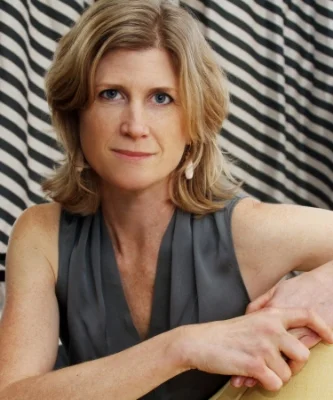Nine Perfect Strangers by Liane Moriarty Book Review
Liane Moriarty’s newest book is compelling and unforgettable.
{Disclaimer: This review contains affiliate links to Amazon.com. I will be compensated a very small amount per book purchased through the links contained in this post, at no additional charge to you.}
I finished Liane Moriarty’s Nine Perfect Strangers today; it was one of the most compelling, un-put-downable stories I’ve read in a long time. I think it’s one of those stories that you’ll either love or hate, and I definitely fell into the love category.
Nine Perfect Strangers refers to nine people who seek a life-changing retreat at an Australian health resort. Playing on the cliche of “perfect strangers”, Ms. Moriarty’s characters are far from perfect — they’re all suffering from some sort of psychological or interpersonal crisis. The soon learn that the retreat is led by Masha, who may be a revolutionary in her field, or who may be something far more sinister. The work is compelling, funny, heartbreaking, and so thought-provoking. At times, I feared the story was turning a little cliched — the young couple whose lives were ruined by a winning lottery ticket springs to mind — but, then again, aren’t most human problems a little pedantic to everyone but ourselves? The story is full of twists and turns, some predictable and others quite surprising. Readers familiar with Ms. Moriarty’s previous work will note that this one presents a larger scale of story with several intertwined storylines. It ranks among Ms. Moriarty’s best, like Big Little Lies and The Hypnotist’s Love Story.
I had the lovely opportunity to attend a book event for Nine Perfect Strangers last week here in Louisville. It was so fun to watch my friend and fellow blogger Anne Bogel of Modern Mrs. Darcy interview Ms. Moriarty about this book. It was particularly fascinating to hear that the story was originally conceived from a single point of view (the middle-aged, unlucky-in-love romance novelist Frances Welty, who serves as the protagonist of the story). I found this interesting because the changes in point of view allowed the reader to really see the characters as others saw them, rather than through their own lenses of self-deprecation. Ms. Moriarty was just so charming and candid that it made me love her work even more! She was so lovely when asked about the Big Little Lies series — she noted, with exaggerated indignation that her Madeline (as originally conceived in the novel) would have never had an affair, unlike “Reese’s Madeline” (the character as played by Reese Witherspoon)! It was so perfect!
Do y’all read Liane Moriarty? I’d love to hear your take on Nine Perfect Strangers, Big Little Lies, or any of her other works!
.
Rules of Civility by Amor Towles and The Masterpiece by Fiona Davis Book Reviews
Two compelling and fascinating stories of Jazz Age New York
{Disclaimer: This review contains affiliate links to Amazon.com. I will be compensated a very small amount per book purchased through the links contained in this post, at no additional charge to you.}
I’ve been in the car a lot recently — three trips to Lexington in two weeks — so I’ve had a lot of time to listen to audiobooks on Audible. I listened to Rules of Civility and The Masterpiece and, while I didn’t intentionally choose a “theme” for these days of listening to fiction, I started to realize that the two books have several similarities. Both are romantic and impeccably researched stories of money and manners in Manhattan of the 1920s and ‘30s, and both are strongly influenced by modern art —each making direct reference to the work of Stuart Davis — and the NYC jazz club scene. (When I type it all out like that, in fact, it seems hard to believe that I didn’t see the similarities immediately.)
I chose Rules of Civility first. Y’all, I just love this book. In fact, I listened to it for a second time last week, having first listened to it audiobook back in the spring, when I discovered author Amor Towles through his stunning novel A Gentleman in Moscow and immediately had to read his earlier work.) Rules of Civility is a smart, sophisticated, fast-paced novel of manners and social status in 1930s New York; it reads like The Great Gatsby if Nick Carraway had actually been one of the bright young things, rather than a judgmental and detached observer. It’s delightful and tragic and it’s one of the few novels I’ve ever read in which a male author successfully writes through the lens of a female narrator. Rules of Civility tells the story of Katey Kontent, the orphaned daughter of Russian immigrant parents. As a young legal secretary in 1937 New York, Katey finds herself in a dramatic romantic triangle alongside her roommate, Indiana-born beauty Evelyn Ross, and a mysterious, WASPy young banker named Tinker Gray. Towles’ work is delicate and complex — a world of wealth and beauty hanging by the thinnest of threads — and nobody is quite who they seem. After listening twice on Audible, I still find myself wanting more.
The Masterpiece, the most recent work by Fiona Davis, tells the story of Virginia Clay, a 1970s divorcee and breast cancer survivor who finds herself working at the information booth in Grand Central Station to support herself and her recent-college-dropout daughter. As Virginia learns to rely on herself, she also uncovers the secret world of the Grand Central Art School, which was housed in the train station nearly fifty years earlier and finds herself at the heart of the fight to retain Grand Central Station as a historical landmark. It’s a fascinating story for anyone who loves the history of New York, modern art (especially abstract expressionism), or vintage fashion illustration. Characters are based on Arshile Gorky and Helen Dryden, if you want to research those artists before reading or listening.
Both Rules of Civility and The Masterpiece are compelling stories of Jazz Age New York, filled with engaging and unique characters. I loved listening to both of these in Audible audiobook format.
All We Ever Wanted by Emily Giffin Book Review
Author Emily Giffin explores wealth, lies, and consent in a story of two Nashville families.
{This book review contains Amazon Affiliate links. I receive a small compensation for books purchased through the links in this post.}
Emily Giffin is an author with whose work I have a complex relationship. I think she's an amazing storyteller and that she has a knack for compelling dialogue and "smart lady soap opera" fiction. I often can't wait to read her books and have them delivered via Amazon Prime on the day of publication. I devour each new book in a day or so. I can't put Ms. Giffin's books down. And yet I often find myself highly conflicted. Something a character says doesn't hit me right, or a plot point seems... not quite right.
I preordered Ms. Giffin's latest, All We Ever Wanted, as soon as I learned that it was set in Nashville. Now y'all know that Nashville is my happy place. I travel there as frequently as possible to recharge my creative batteries. I especially love the neighborhoods in the southern/ southwestern end of town; several of the main characters live in this area, in the exclusive Belle Meade neighborhood. I've made many fun trips to the East Nashville area for meals and festivals and events; this neighborhood plays a prominent role in the work as well. So, I kind of braced myself. Ms. Giffin grew up in suburban Illinois, practiced law in NYC and wrote in London before settling in Atlanta with her husband and kids. I always wonder if she has a bit of disdain for the South; the main character in Love the One You're With -- an otherwise highly compelling novel -- seemed to delight in subtly disparaging the South in a way that made me cringe. So, when I picked up a novel set in my favorite city by an author whom I know to be a compelling storyteller, I still had guarded expectations.
Let me just start off by saying that, from a storytelling perspective, All We Ever Wanted is fantastic. The book tells the story of two Nashville families, the Volpes and the Brownings. The wealthy Brownings, Kirk, Nina, and their son Finch, are firmly ensconced in Nashville's elite Belle Meade circles, while single father and carpenter Tom Volpe raises his daughter Lyla in a blue collar East Nashville setting. Finch and Lyla are classmates at a prestigious private school; their worlds are changed forever when a drunken photo of Lyla is posted to Finn's social media. The story is a fast-paced and heart-wrenching story of parental guilt, hidden secrets, and long-ago pain. Nina finds her small-town morals at to be at odds with her husband's desire to protect their son's Princeton admission at any cost, and she begins to address a long-suppressed assault that has impacted her entire adult life. Tom must confront his own class biases and the scars left by his tumultuous relationship with Lyla's mother, an alcoholic who abandoned them when Lyla was a toddler. This story plays out as every mother's nightmare: "How did my little baby become this person?" becomes "Is my child a psychopath?" in fairly short order. The work forces readers to think about the impact of class and privilege, the slippery slope between alcohol use and abuse, and the often-terrifying landscape of sexual consent and assault. It's a timely, nuanced, and tight narrative about the damage we can inflict on others and on ourselves, and it's a fantastic pool read.
And yet -- y'all knew there'd be a yet -- there were problems. Readers, I think I have to confess to y'all that the problem was with me and not with the book. I couldn't get past weird little details like "You send your kids to single sex-high schools like MBA or Harpeth if you live in Nashville" or "Nobody splits a glass of wine at Husk" or "A Methodist cop who's lived his entire life in Bristol would never drive home after drinking even a single beer." I didn't love the broad-sweeping message that you're kind of inherently vapid and materialistic if you live in Belle Meade and that you're in touch with core values if you hail from East Nashville; I've definitely met plenty whofolks who defy each of these stereotypes. And yet, as a writer and a serious reader, I know better than to allow myself to get mired in these little details. I know that if I set a novel anywhere other than the places I've lived -- Lexington, Louisville, Nashville, or the holler -- I couldn't pass this test. If I set a piece of fiction, the author of this work could likely find just as many nitpicking details that I got wrong. Ms. Giffin has been painstaking in her research of the city. So many things seem perfectly right, like pastries from Sweet 16th, which makes the best red velvet cake in East Nashville, or possibly anywhere in the world. Ultimately, she gets more "Luke Bryant popups in the Gulch" and "Buying jeans at Imogene + Willie" stories right than wrong, these little details make me sound like a pedantic malcontent, and the book is the best piece of chick lit that's been published so far in 2018.
I recommend All We Ever Wanted for anyone who loves Big Little Lies, Something Borrowed, or the early seasons of Nashville. Please chime in if you've read the book and have an opinion on the story, or if you've ever found yourself derailed by an author's tiny missteps in regard to locale and local customs!
A Gentleman In Moscow Book Review
Book Review of A Gentleman in Moscow
(This post contains affiliate links. HerKentucky LLC may receive a small per-click commission on product links, at no cost to the reader.)
I recently listened to A Gentleman in Moscow by Amor Towles on Audible. (Click here to download your copy of this audiobook for free!) This book had been on my to-read list for a while, and it turned out to be one of those books that struck my imagination in so many ways!
The story centers around Count Alexander Rostov, a Russian nobleman and bon vivant who, in 1922, is sentenced by a Bolshevik tribunal to spend his remaining days living in Moscow's Metropol hotel; his sentence carries the threat of a firing squad if he leaves the hotel's grounds. I've read interviews in which Mr. Towles notes that he chose Russia of this era because odd "life sentences" were unique to that setting. The Russian setting is, in many ways, immaterial to the plot of the story. The tiny world within the Metropol's walls could be constructed anywhere at any time, as the story's theme of finding gentility and beauty in any circumstance shines through.
A Gentleman in Moscow tells the story of Count Rustov's adventures and interactions, triumphs and sorrows over the 30+ years he resides at the Metropol. Some reviewers have called the book a bit too twee in its portrayal of post-Revolutionary Russia and, indeed, there are times when it feels like Doctor Zhivago has taken up residence at the Grand Budapest Hotel. Certainly, the novel is framed in the sensibilities of its author, an American investment banker turned writer. The novel's beauty lies less in its historical accuracy or political sensibilities than in its exploration of the idea that Count Rustov built friendships and lived a remarkable life within the walls of his captivity. The world within the Metropol seems as layered and nuanced as any international travel, and even stripped of his title, the Count's character embodies gentility and nobility at every turn. I eagerly await the British TV adaptation of the work, and can't imagine any actor better suited to the Rostov role than Kenneth Branagh.
I'm fairly new to audiobooks; I particularly enjoyed this format for A Gentleman in Moscow for a couple of reasons. First, as with any book set in Russia, the names get tricky, and it's often quite cumbersome to recall diminutive forms. Second, the early chapters of the work are a bit slow, and the narration by Nicholas Guy Smith infuses humor and good nature into the Count and his friends and colleagues as the reader comes to know them all. I find that audiobooks on Audible are great for work car trips as well as while I'm sitting at my desk doing administrative tasks. I pair my phone's Audible app through my car's Bluetooth and through the speaker in my office. Both setups provide a far richer sound quality than if I merely press play on the phone.
If you love epic novels or tales of manners and social class, you'll love A Gentleman in Moscow. Try it on Audible for free and let me know what you think!
Dolly Parton's I Believe in You Benefits Imagination Library
The beloved Appalachian-born singer's new album benefits her childhood literacy nonprofit.
I seriously love Dolly Parton, y'all.
Reese Witherspoon knows what's up.
I mean, she's a mountain girl with big hair who followed her dreams and forged her own path. She basically drew a road map for me.
Of course, beyond her timeless songs (there really isn't a serious argument against my belief that Jolene is the best song ever written...) and two of the most iconic movie roles ever (Doralee and Truvy, obvs), there's Dolly's commitment to treating others well, sharing her good fortune, and generally doing the right thing. Dolly has been vocal about her support of marriage equality. She gave millions of dollars Gatlinburg-area families the funds to help them get back on their feet after devastating fires claimed their homes.
And then there's the Imagination Library. Y'all, this is seriously one of the coolest initiatives ever. Miss Dolly founded the Imagination Library in 1995 to provide books to the children of her hometown Sevierville, Tennessee. Dolly's mission to ensure that children had access to high-quality, age-appropriate books, regardless of household income, was designed to honor her own father, whose circumstances in the Appalachian hills of Tennessee led to his never learning to read or write. Over the past 22 years, the Imagination Library has mailed more than 100 million books to children in Australia, Belize, Canada, United Kingdom and the United States. This service is completely free to the recipients, y'all! Over 1600 communities are served, and over 1.1 million children have registered!
Here in Kentucky, there are over fifty Imagination Library affiliate programs. You can register your child aged 2-5, regardless of household income, if you live in an area supported by the Imagination Library. I love the fact that my little niece receives a monthly Imagination Library book! She already loves books, the alphabet, and reading, and she's showing every sign of having some seriously big hair of her own. It’s a pretty good start for a little mountain girl!
If you love Miss Dolly (and childhood literacy) as much as I do, then you should check out Dolly’s new children’s album, “I Believe in You” which is available in stores today! All proceeds from the album benefit the Imagination Library. There’s even a special edition CD package that comes with a children’s book based on Dolly’s song Coat of Many Colors. What a cute Christmas present!
Here's to big-haired mountain girls who know what they want, and who always exhibit grace and kindness on their journey!
Love Dolly as much as I do? Shop the Draper James What Would Dolly Do collection! This tee might be the most-complimented item I own!
Banned Books Week: Uncle Tom's Cabin
This week is Banned Books Week, a celebration of Americans' access to books that have been deemed controversial, unacceptable, or otherwise restricted or censored.
Our beloved Bluegrass State has the dubious honor of being the setting for the first section of one of the most controversial and frequently banned books in the history of American literature. Uncle Tom's Cabin, written in 1852 by a Connecticut native and abolitionist named Harriet Beecher Stowe, the book was a response to the passage of the Fugitive Slave Act, which required the return of runaway slaves to their masters.
Uncle Tom's Cabin would go on to be the second-best-selling book of the 19th century (second only to the Bible), but it did not receive universal praise. At the time of its publication, many slave owners and Southern sympathizers felt that the harsh depictions of slavery found in the book were unfair, while abolitionists considered the work a catalyst for social change. In fact, when President Abraham Lincoln met Mrs. Stowe, he said: “so this is the little lady who made this big war.”
In recent years, the novel has come under fire for use of racial epithets and for the reduction of African-American characters to tropes. However, the role that Mrs. Stowe's novel played in heightening awareness of the conditions of slavery cannot be underestimated.
This week, HerKentucky urges you to read a banned book and to remember the crucial power of controversy in the written word.
A Conversation with Irrepressible Author Emily Bingham
HerKentucky editor Heather C. Watson interviews Louisville native author and historian Emily Bingham.
The second child and only daughter of Louisville politician, judge, and publishing magnate Robert Worth Bingham, Henrietta was born in 1901 into a Kentucky of thoroughbreds, cotillions, and country clubs. Her Louisville was a world most of us have only experienced in myth -- her grandmother Henrietta Long Miller owned an imposing mansion in Old Louisville and an equally impressive summer home in Peewee Valley -- but which was often too rigid for her tastes. Upon graduation from Louisville Collegiate School, Henrietta sought refuge first at Smith College (where she began an affair with magnetic young composition professor and heiress Mina Kirstein, whose family co-founded Filene's Department Stores), then abroad, where her gracious disposition and violet eyes captivated the free-spirited intellectuals of the Bloomsbury group. Among her confidantes and lovers were Wimbledon champion Helen Hull Jacobs and actor John Houseman; her complex and co-dependent relationship with her larger-than-life father cast a decidedly Southern Gothic shadow over her life of privilege.
Henrietta Bingham (image via The Daily Beast)
Ultimately, the societal norms of Henrietta's era -- it's heartbreaking to remember that, less than a century ago, gay Americans were forced into the closet by the imminent threat of criminal charges and physical violence -- along with a lifelong history of mental health and substance abuse issues ultimately dulled Henrietta's flame. The outré flapper and muse became known as a sad and embarrassing branch of the Bingham family tree. When Henrietta's great-niece, the writer and historian Emily Bingham, announced her plans to name her daughter for this relative whom she'd never known, the story goes, her family blanched. Henrietta's name was considered an unwelcome burden to saddle upon a new generation of Binghams, so Emily started reconstructing her great-aunt's story. In a twist so fortuitous that it seems torn from the pages of a Hollywood script, Emily Bingham found two perfectly preserved trunks in the attic of her family's estate. Henrietta's story unfolded through the trunks' contents -- a glamorous story of love, heartbreak, and adventure. Emily graciously answered some questions about Irrepressible for HerKentucky readers.
Henrietta's partner, Helen Hull Jacobs
HK: What was going through your mind when you discovered Henrietta’s trunk of memories?
EB: That day in 2009 was probably one of the greatest experiences I'll ever have as a historian. I went to that attic in my childhood home very reluctantly. I had peeked into the trunk some time before and seen a lot of very old shoes, hats, that sort of thing, and it was pure duty to spend hours on a frigid January day in the uninsulated space full of soot and lit by a single dangling bulb. The house itself was empty and did not contain my happiest childhood memories (though I did love exploring the vast attic where servants had once lived and where my father and his siblings had a lot of toys and books and old saddles stored).
The first amazing find was a massive silver flask with Henrietta's initials. It holds about two fifths of bourbon. Nothing like the discreet flapper flasks you might imagine.
Then I came across the tennis outfit that turned out to have belonged to Helen Hull Jacobs, the 1930s lesbian tennis champion. Her monogrammed shirt suggested a more intimate relationship than I knew had existed between her and my great aunt, and the clothes, which I sent to the Tennis Hall of Fame in Newport, RI led me to her diaries and scrapbooks and the "joyous and satisfying life" she shared with Henrietta in the 30s and 40s.
There were some little tiny folded papers containing white powder. I thought I'd come across some illicit drug but on closer inspection they proved to be "dog powders" for Henrietta's beloved border terriers and Pekingese!
And then, as I was about to leave for the day to relieve my babysitter, I saw that another trunk was hidden in the shadows in a corner of the garret room. At the very bottom is where I found the carefully tied up and almost perfectly-preserved collection of love letters from the sculptor Stephen Tomlin and the actor/producer John Houseman. Seeing Henrietta through their besotted eyes was one of the utter thrills of my experience with this book.
Young Henrietta. Image via The Daily Beast.
HK: Was there ever a time when you thought of turning back and keeping Henrietta’s story in the past?
EB: Absolutely. My editor didn't think the book was even possible given that I had no diaries and almost no letters from Henrietta herself. So it was almost DOA. But I pushed past that with some of the discoveries in the attic and elsewhere. There was a point when her depression and addiction melded with a sad and confusing time in my life and I wondered if the project might not make me ill.
Henrietta Bingham (image via Courier-Journal)
HK: I’m a Jazz Age buff, and a Kentucky native, so as I read, I was thinking both of the timeline of some of my favorite authors and historical figures (thinking, e.g., “OK, Scott and Zelda would have been here, or Gerald and Sara Murphy would have been here”) and of a very local timeline (saying things like “the Miller house was a block down from the Woman’s Club” or “of course they all thought Henrietta was a gracious hostess; she was a Louisville girl!”) It almost felt like Henrietta lived two completely separate lives –freedom in London and duty in Louisville. When you were working on the book, how did you feel that place played into Henrietta’s story?
EB: Henrietta felt very connected to her Kentucky and southern roots. There is a remarkable passage in the pages John Houseman cut from his memoir: see page 180-181. He was drawn in by the romance of Kentucky but later he came to see things in a more nuanced way. Here's a bit more of it: "I discovered that Louisville was, in reality, a typical middle-Western American city, indistinguishable from Indianapolis or Cincinnati, and that its main claim to national fame -- Churchill Downs, scene of the Kentucky Derby -- was ringed with factories and power plants that made it, without question, one of the most squalid hippodromes in the United States. Yet, for close to a century, from Foster to Fitzgerald, the legend of Louisville's romantic fascination had persisted--and not without reason. For in its own mysterious way the spell worked -- not only on public occasions such as the long Derby weekend, when the entire population, swollen by streams of visitors, lived in a state of collective alcoholic hallucination, but also, in a more intimate way, each time the natives came together and succeeded, through sheer emotional energy, in generating and sustaining an atmosphere of glamour and gaity that was no less magical for being achieved almost entirely with Bourbon and mirrors."
Henrietta loved her Miller grandmother. She also loved having a mansion to throw parties in. She dared to make passes at girls at the Louisville Country Club and kiss her lover in the elevator at the Pendennis. She went sledding in Cherokee Park and was pushed in a stroller in Central Park in Old Louisville. I was stunned when I figured out that for at least a year she and her father and elder brother occupied an apartment 5 doors away from me on Cherokee Road! London and Manhattan were much freer places for her, for sure, but I think she always wanted to come back and her thoroughbred breeding farm at Harmony Landing was the way she hoped to find her way in -- brave as a woman, a lesbian, and someone without direct experience in bloodstock (though her great uncle Dennis Long had two Derby winners in her childhood and that may have set her ambitions early).
Emily Bingham. Image via author's website.
HK: You do an amazing job of, as you say in the preface, not presuming to speak for Henrietta. Yet, you’re very fair with your assessments of her mental health and her likely dyslexia. Was this a hard line to walk?
It's always hard to walk the line between empathizing with your subject and wanting to protect them and being frank about their weaknesses and shortcomings. I believe that readers don't just want "models" and can appreciate lives that are as complicated and imperfect as their own.
HK: If you had the chance to talk to Henrietta, what would you say to her?
EB: Sing for me. Play the sax. Tell me the stories of the musicians you loved and who, doubtless, found you pretty interesting, too. What was your favorite bar, show, concert, player? Where did you feel most free? Who did you really love? Finally, "You are in the world again and people still find you lovable and irresistible and are so glad not to have lost you altogether."
Thanks so much to Emily for the amazing interview, and for writing the summer's best book. Check back later this week as HerKentucky takes you on a photo tour of Henrietta's Louisville.





